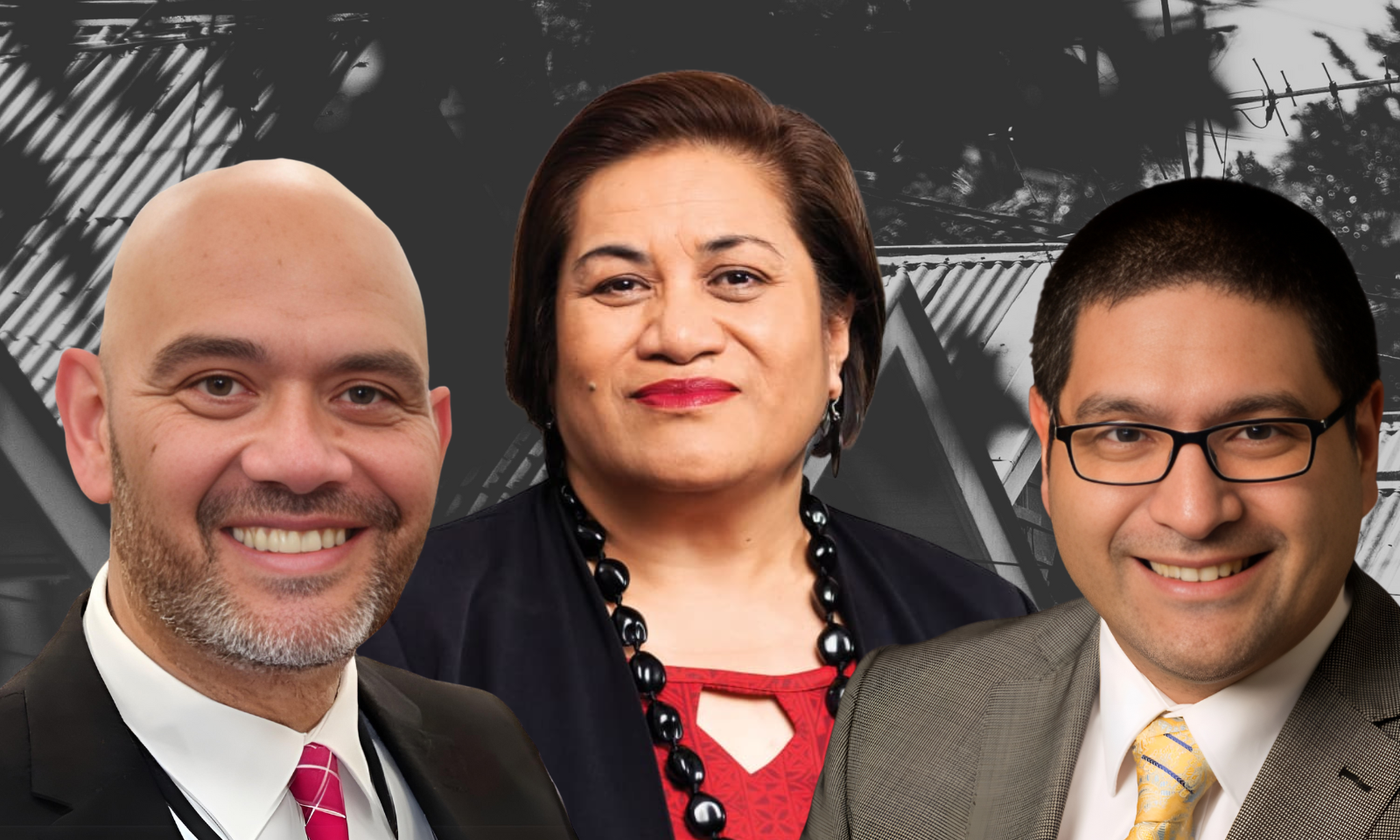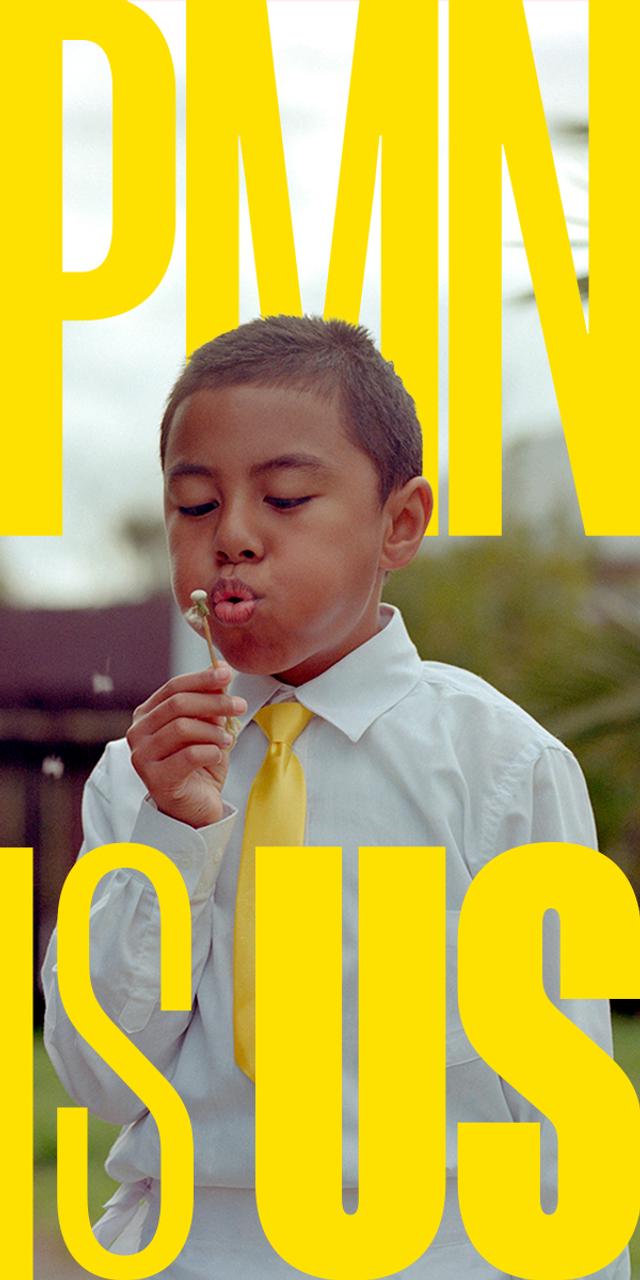

Locked Out is a four-part radio documentary series by PMN News and Pacific Mornings.
Photo/ PMN News
From certainty to instability: The home ownership crisis facing Pacific communities
Episode two of PMN's latest podcast, Locked Out, looks at declining Pacific homeownership in Aotearoa New Zealand, as economic and policy changes force the majority of families into uncertainty and instability.


‘A liveable future is at stake’: Critics call out David Seymour’s climate stance



Waitangi Day 2025: Pasifika and Māori strengthen ties amid political tensions

‘A liveable future is at stake’: Critics call out David Seymour’s climate stance


In the 1980s, more than half of Pacific households in Aotearoa New Zealand lived in houses they owned. But by 2018, it had dropped to just 21 percent. In a four-part radio documentary series Locked Out, PMN News and Pacific Mornings examines what led to the decline and potential solutions for getting back to the home ownership rates of four decades ago.
To listen to episode two - From Certainty to Instability – click on the link below.
Cook Islander Thomas Tarurongo Wynne grew up in an Auckland home owned by his parents, but decades later, he finds himself a long-term renter, shuffling his family from house to house.
And he’s not alone, today only one in five Pacific households live in houses they own. In the 1980s over half of Pacific households owned their homes.
When Wynne’s parents migrated to New Zealand in the 1950s, they were among the many Pacific families who had little in the way of financing for a home. In the mid-1950s, there were about 10,000 people of Pacific ethnicity living in Aotearoa New Zealand.
“But then there was a scheme where families could use their family benefit to accumulate enough of a deposit to move into a house. My parents never borrowed money from a bank,” says Wynne.
“They were actually able to go to the government at the time, which was using a number of different schemes in the 1970s to get people into their first home.”
That first house cost $20,000 and became home for Wynne, his parents, and two brothers.
“I remember Dad sowing the grass at the front. It was a brand-new house, and we were just grateful to be in our own home.
“But if it wasn’t for the government, we wouldn't have got in because I don’t think there was any opportunity for my parents to be able to go to a bank and get a mortgage.
“They worked so that we could live. There wasn’t a lot of savings because there wasn’t a lot to save.”
State support
Economist Filipo Katavake-McGrath says there was a period in the 1960s and 70s when a number of factors worked well for Pacific families to become home owners.
“First up, there was a high demand for Pacific workers in different factory, manufacturing, and labour-intensive industries. Because of that competition, wages compared to other sectors were relatively equitable, so you had relatively high wages,” he says.
Another factor that supported Pacific people in those years to become homeowners was a state welfare system that gave a family benefit. There were two options: you could receive your benefit weekly or advance a lump sum.
“Research tells us that many Pacific families capitalised their family benefits and used those as deposits to get into their houses,” says Katavake-McGrath.
He says the deregulation of the banking sector in 1984, and towards 1987 after the crash, changed the way people could access lending. Up until the late 70s and early 80s, the Housing Corporation was the major source of mortgage finance, and it was also acceptable to have multiple mortgages on a home.
“So what we also saw were Pacific families who would take on two or three mortgages to get themselves into a home and then work really long hours in factories to pay the mortgages off.”

(Left to right) Cook Islander Thomas Tarurongo Wynne, Labour MP Lemauga Lydia Sosene, economist Filipo Katavake–McGrath.
Security and empowerment
Katavake-McGrath says home ownership also gave Pacific families certainty, security, and control because they could budget for their mortgage and weren’t subject to the vagaries of a private landlord.
Wynne agrees.
“It gave us security. We didn't have to think that at some stage someone was going to move us out or that we would be given notice and then we’d have to move," he says.
“So we were able to build communities because we were a community and we weren't transient. We weren't having to move into other areas.”
Labour MP for Māngere Lemauga Lydia Sosene says the stability that comes with home ownership leads to empowerment.
“Pacific families who have the stability of owning their own home will feel much more empowered, not just in terms of education for their young people, but also job security, education pathways, and being able to live with certainty because they have an owner-occupied property.”
But changing government policies from the 1980s, a deregulated financial sector, increased housing costs, the removal of schemes that helped low-income Pacific families into home ownership, and a series of economic shocks resulted in fewer families becoming homeowners.
By 2018, only one in five Pacific households were homeowners (21 per cent) - 31 per cent of Māori and 60 per cent of New Zealand Europeans.
Home is where the heart is
Katavake-McGrath says the attitude to housing also changed; houses became a commodity for generating wealth, whereas for Pacific families, their “home was all about the heart, not about the resale value”.
Wynne says when he was growing up, houses weren’t thought of as a financial asset.
“It was just somewhere where you lived. And then if you had more children, you bought a bigger house ... but it wasn't the kind of thing where the capital gain was at the forefront of your mind.
“That changed in the 90s, and now, of course, a $20,000 house is now worth $1.5 million, but it's exactly the same house.”
At the age of 58, that sense of security that comes from home ownership has eluded Wynne, as he was part of a group growing up in the 1980s when New Zealand’s approach to housing was changing.
“I was never in a position to own a home. I was definitely in that group of people in the 1980s that had to rent.
“I sat down one day and thought about it with myself and my family, and we moved probably 23 times from the first home we rented in Sandringham to the last home we rented in Mount Albert.
“And each time it was because the landlord was selling the house, and we had to move. And it just became this constant cycle of packing up and moving, finding a house, moving in, and then shifting again,” he says.
Legacy of instability
Wynne has a deep empathy for people who don’t own their own homes, because he grew up in a home-owning family but is now a long-term renter.
“I grew up in it, but I haven’t been able to access it for me or my children. I do think, what can I do for them when I’m gone? What can I leave for them?
“Intergenerational equity is not going to be something I can leave for them, and they’ve had to work hard because of that. And I feel that as a dad.”
Wynne says his story is a common one.
“I know there are lots of parents out there that are saying to themselves, what do I leave my kids other than debt?”
“We have to find creative ways to scaffold families into home ownership,” he says.
“We cannot leave people renting. The only people that make money out of renters are investors.”
Reporting by Ala Vailala, Christine Rovoi, William Terite and Samson Samasoni. Narration by William Terite. Produced by Samson Samasoni.

